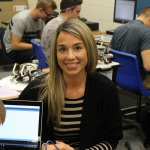Welcome to our third edition of Math + Code, an online magazine that connects math to coding and coding to math. We are thrilled to be releasing another issue of this online resource for teachers, students and parents.
Featured Articles
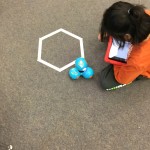 Teacher and Learner Roles are Ageless – Donna Forster
Teacher and Learner Roles are Ageless – Donna Forster
I quickly came to the realization I do not have to limit myself to be the “keeper of ” nor the “passer on” of knowledge. Seymour Papert in his book, Mindstorms, describes the feeling of release I experienced best by stating “New situations that neither teacher nor learner has seen before come up frequently and so the teacher does not have to pretend not to know.”
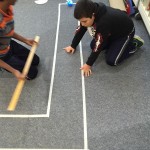 Computational Thinking – The Journey from Skepticism – Matthew Oldridge
Computational Thinking – The Journey from Skepticism – Matthew Oldridge
Using the tools you have, can you write a program to make the computer do what you want it to do? Can you bring what you picture into being, using blocks or a coding language? If it doesn’t work, what will you do then? In my limited experience, debugging a program is a powerful exercise in analytic thinking, trial and error, and just plain perseverance.
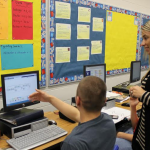 Learning Math Through Coding – Diane Tepylo & Lisa Floyd
Learning Math Through Coding – Diane Tepylo & Lisa Floyd
Listening to how our students understood the programing commands and structures, we adjusted our teaching to help our students become better at programming. By doing so, we found that our students were learning mathematics.
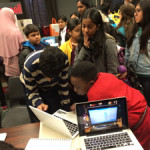 Funding for Math + Coding Community Event
Funding for Math + Coding Community Event
Students love to share their learning! Organize a community event where students share their math + coding adventures and we can offer some funding support.
Creative Corner
A Children’s Story – Ada Lovelace – Countess of Coding – Scott Locke
Do you think we could live without computers? Where do computers come from? Who do you think first invented the computer? Let’s explore the history of computers, find out how they started, and see the stories of people who helped create the ideas that lead to the technology we have today.
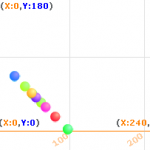 Try this: Plotting Points in Scratch
Try this: Plotting Points in Scratch
Often, we can provide students with code in Scratch for math class that they can remix. In this way, the emphasis is not on the programming itself, but on the math ideas that are being discovered.
Interview
Inspired by CLC, Teacher Inspires others with Coding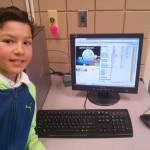
Students were problem solving independently and not constantly seeking my support to find the answer. Although, when they did need help, they collaborated with their peers to find resolutions to a problem. Students gained confidence and also began to share their learning with their other peers, their parents, and many adults within our school.

